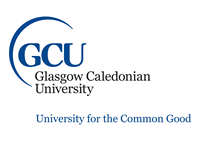Co-creation is a novel approach to tackle complex global public health issues. However, to date there is no evidence to underpin co-creation and no scientific methodology to guide it and ensure it is effective. Enabling technology have the potential to facilitate and help in the governance of co-creation ensuring its efficacy and trustworthiness.
This project aims to develop, experiment and validate open source disruptive technologies, platforms and tools to enable Big data, AI and knowledge management techniques to facilitate evidence based co-creation of public health interventions. The ESR will work specifically on understanding what open source technologies can be used at each stage of the co-creation process and to facilitate and govern the co-creation process. The ESR will investigate questions such as Can AI be used to analyse data collected during the co-creation process? Can AI help in ensuring that co-creation is democratic and that all stakeholders can have a voice and that the voice is represented? Can we use wearable devices to facilitate co-creation and what technologies can we put in place to facilitate co-creation remotely such as during pandemics. The ESR will investigate the impact of different technology on the outcome and process of co-creation of public health interventions in different context including health care, schools, workplace and communities. This work will contribute to the development of guidelines for co-creation and of a training course.
The successful candidate will be based at Glasgow Caledonian University (GCU), one of the largest Universities in Scotland, with over 20000 students and core businesses of education and research. At the last UK research assessment, GCU ranked as the top modern university in Scotland by research power and in the top 20 in the UK for health research at world-leading and internationally excellent standards. GCU is 43th in the world impact rankings. Within the University, the School of Health and Life Sciences is the largest and is an interdisciplinary school with a strong profile of external research funding. The Centre for Living is the School’s implementation and applied science research centre. Its core objectives are to facilitate the translation of evidence into health care and public health practice, training of health care practitioners, and public engagement.
The main supervisor on the project will be Prof Sebastien Chastin (GCU). The candidate will also be supervised by Health Cascade team members from the National Centre for Scientific Research Demokritos (Greece).
The successful candidate will have the opportunity to conduct an academic placement in National Centre for Scientific Research Demokritos (Greece), and non-academic placements with Neotrope (France) and Singular Logic (Greece). Neotrope is a world leader in wearble technology to measure psychological signals and Singular Logic is a leading provider of Enterprise Sortware Solution and integrated IT solution.

 Continue with Facebook
Continue with Facebook

